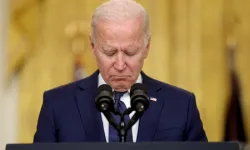In Alabama, a prisoner named Kenneth Eugene Smith is scheduled to be executed by nitrogen in a gas mask. But there are concerns about the practice.
The Alabama Attorney General's Office told federal appeals court judges last week that nitrogen hypoxia is "the most painless and humane method of execution known to man." But some doctors and critics say it is not known exactly what Smith, 58, would have felt after the guard turned on the gas.
Dr. Jeffrey Keller, president of the American College of Correctional Physicians, said in an email, "No one knows what effect the inmate will feel from the nitrogen gas. This has never been done before. This is an experimental procedure," he wrote.
Keller, who was not involved in developing the Alabama protocol, said the plan was to "remove all oxygen" from the air Smith breathed and replace it with nitrogen.
Smith is scheduled to have a "full face-piece air breathing apparatus" implanted in his face. According to state protocol, the nitrogen will be administered for at least 15 minutes.
First attempt since 1982
The execution will be the first trial using a new method since the introduction of lethal injection in 1982. Three states - Alabama, Mississippi and Oklahoma - have authorized nitrogen hypoxia as a method of execution.Some states are exploring new methods because lethal injection drugs are difficult to find.The American Veterinary Medical Association wrote in its 2020 euthanasia guidelines that nitrogen hypoxia is not an acceptable method of euthanasia for most mammals because the anoxic environment is "distressing".Experts appointed by the United Nations Human Rights Council have also warned that this method of execution could violate the prohibition on torture.
Dr. Joel Zivot, an anesthesiologist and one of the four experts who filed the UN complaint that led to the warning, said Smith was at risk of seizures and choking to death on his own vomit. He added that any leak under the mask could prolong the execution.Smith was one of two men convicted in the 1988 contract killing of a preacher's wife.Prosecutors said the men were paid $1,000 to kill Elizabeth Sennett, 45, on behalf of her husband, who wanted to collect an insurance claim. The medical examiner testified that Sennett was stabbed repeatedly. When her husband became a suspect, she killed herself. The other man found guilty, John Forrest Parker, was executed in 2010.













